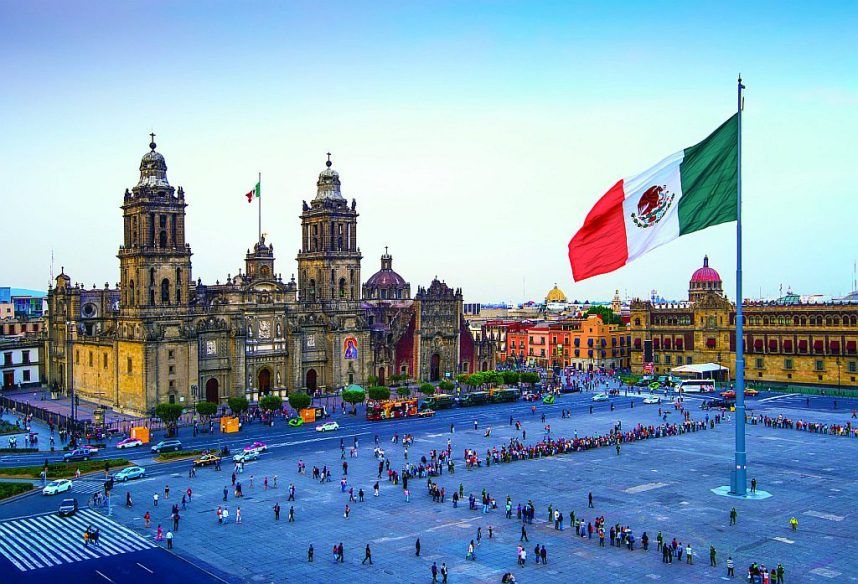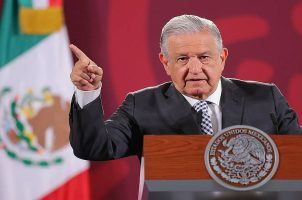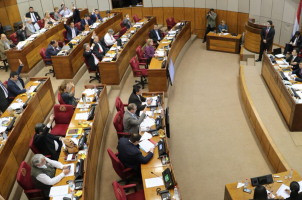Mexico’s Gaming Industry to Fight Government Over Recent Slot Ban
Posted on: November 29, 2023, 06:50h.
Last updated on: November 29, 2023, 10:16h.
Two weeks after Mexico’s president announced a ban on slot machines in casinos and gaming halls, representatives from the gaming industry are ready to fight back. They’re gearing up to mount legal challenges in defense of their operations in what will likely be a prolonged legal battle.

Miguel Ángel Ochoa, president of the Association of Permit Holders, Operators, and Suppliers of the Entertainment and Gambling Industry in Mexico (Aieja, for its Spanish acronym), laid out some of the battle plans this week. He told local media outlets that the defense strategy will tackle two fronts: safeguarding the industry’s interests, and advocating for revisions to the Federal Law on Games and Sweepstakes.
On November 16, the federal government issued a decree through the Official Gazette of the Federation (DOF) declaring a halt to the issuance of new permits and the nonrenewal of existing ones for slot machine operations. Aieja argues that the unilateral decision is going to paralyze the regulated gaming industry, as well as the country.
Slots Mean Big Money
Slots constitute a substantial 85% of the industry’s business. The imposed restrictions could potentially translate to a staggering loss of MXN12 billion (US$700.32 million) in revenue for the current federal government.
One notable criticism from the gaming sector revolves around the National Commission for Regulatory Improvement (Conamer, for its Spanish acronym). Despite the public consultation conducted in the months leading to the announcement, it chose to disregard the industry’s input.
Consequently, Ochoa confirmed that Aieja will pursue legal channels to prevent the medium-term closure of businesses. The impending impact is forecast to be particularly harsh on the majority of casinos, with their permits set to expire between 2028 and 2033. A blanket restriction on slot machine permit renewals is scheduled for 2038.
Aieja has highlighted that Mexico’s Federal Law on Games and Sweepstakes hasn’t been significantly altered in about 80 years. Instead of a knee-jerk reaction that eliminates slots, it believes the common-sense approach would be to first update the country’s gambling laws.
A Death Blow to Casino Employment
During the evaluation of the proposed regulations, casino operators voiced concerns that the measures would not only curtail gaming options, but also potentially repel customers from these entertainment hubs. They even highlighted feedback from industry workers who expressed apprehension about the uncertain fate of their employment.
With 429 casinos across the country generating 180K direct and indirect jobs, there is a looming threat of more than 100K positions being at risk over the next six years. Additionally, there is a warning that companies involved in the manufacturing of slot machines may withdraw their investments from Mexico.
Ochoa emphasized that the gaming industry has been engaged in ongoing dialogues with the Ministry of the Interior and legislators. Aieja hopes to initiate discussions on new regulations starting next February during the last session of the current Congress.
The goal is to foster an environment where the concerns of the industry are taken into account, and a balanced approach is adopted to address regulatory imperatives and the sustainability of businesses in the sector.
A Glimmer of Hope
Getting President Andres Manuel Lopez Obrador to change his mind isn’t likely. But Mexico’s gaming industry has a potential lifeline. Presidents can only serve one six-year term in Mexico, and Obrador is out next year.
That leaves the door open for a new president to emerge. Currently, the most likely candidate is former Mexico City mayor and Obrador ally Claudia Sheinbaum. While she’s not a staunch gambling supporter, she’s not an enemy of the industry, either.
Sheinbaum led a reform as the mayor of Mexico City to stabilize the taxes gaming operators paid. She recognized the contributions of the industry to the government, which could be helpful as Aieja looks for support.
Related News Articles
Mexico’s New Reform Seeks to Ban Slot Machines
Mexico Bans Slot Machines in Casinos, Gambling Houses Across the Country
Paraguay Enhanced Slot Machine Law Dies as Deadline Passes
Most Popular
Mega Millions Reportedly Mulling Substantial Ticket Price Increase
NoMad Hotel to Check Out of Park MGM on Las Vegas Strip
VEGAS MYTHS BUSTED: To ‘86’ Someone Was Vegas Mob Slang for Murder
Most Commented
-
End of the Line for Las Vegas Monorail
— April 5, 2024 — 90 Comments -
Mega Millions Reportedly Mulling Substantial Ticket Price Increase
— April 16, 2024 — 8 Comments -
Long Island Casino Opponents Love New York Licensing Delays
— March 27, 2024 — 5 Comments
















No comments yet